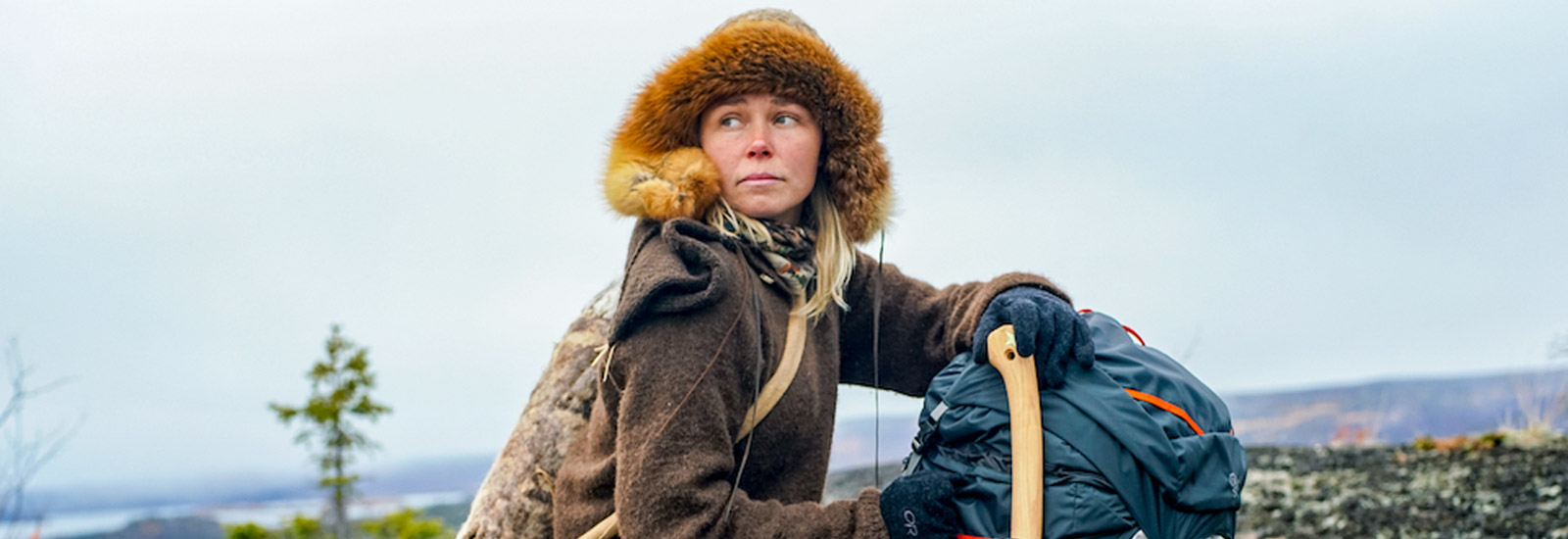
I’m a longtime fan of Survivor, the CBS reality series that wrapped up its 40th season last spring. I’ve seen every season, and several seasons more than once. Survivor puts 20 or so people on an island, and in each episode, a player is voted out. There are a number of challenges and immunity idols, but ultimately, Survivor is a social game, and often the players themselves have little say in their own fates. In more recent years, it’s a game that more often than not rewards mediocrity, because the better players are seen as “threats” and voted out as soon as possible. Often in the last couple of years, when I mention to someone my love of Survivor, he or she will invariably ask if I have watched Alone, the History Channel reality documentary series that also streams on Hulu.
While it’d be easy to describe Alone as a hardcore version of Survivor, it actually has very little in common with the CBS series, although it is decidedly hardcore. It is not a social game; it’s the opposite of that. There are no challenges. There are no opportunities to earn catered meals from Applebees. In Alone, ten contestants are dropped in the middle of nowhere (Vancouver Island, or Mongolia, or Patagonia); they are separated from each other by several miles; and they have to remain out in the wilderness for as long as they possibly can. They are allowed to take 10 items with them, and with those ten items, they must construct their own shelter and find their own food. There is no camera crew, either; the contestants have their own cameras, and they film themselves. The only contact they have with the outside world is when a medical team drops by occasionally to see if the player is healthy enough to continue with the game.
It is an insane endurance competition; it’s not about outwitting or outplaying the other contestants. It is simply about outlasting. The player who survives the longest wins. The people who are chosen as contestants are not picked because they have interesting personalities or look good on camera. They are chosen because they have survival skills. They know how to fish; they know how to hunt; they know what plants to eat, and they know how to live completely alone out in the middle of nowhere.
It is an insanely difficult show, and it is tremendously fun to watch, but perhaps not for the reasons one might imagine. The reason it’s such a great pandemic show is that Alone is a strangely serene television series. It’s like nature ASMR; these contestants live peacefully and quietly out in the middle of the wilderness until either they can’t stand to be alone anymore; they’re injured and have to leave the game; or they are medically evacuated because they are too close to starvation to remain any longer.
There’s a $500,000 prize, and initially, the prize money is what keeps everyone playing. As the weeks and months go by, however, players often find ways to rationalize their decisions to “tap out,” or leave the game (each of the players is given a radio, and as soon as they are ready, they can call in and resign the game). After spending that much time alone living off the land, the money almost always becomes secondary to their “journeys.”
It’s a calming game, and yet, the stakes are very high. The most exciting moments often involve catching a fish, because a fish might allow them to stay a few more days before they starve. We’ve seen an herbalist find plants to treat nasty, dangerous spider-bites from a Chilean recluse; we’ve seen players hiding out in their shelter while pumas circle them; we’ve seen players literally outfoxed by a fox (night after night after night), and we’ve seen players pulled after losing more than a third of their body weight.
As often or not, however, players leave not because of spider bites or starvation, but because of loneliness. Because they miss their families. Because they miss the simple comforts of home. I was finally convinced to watch the series, in fact, when a friend told me about a player who had had a lot of survival training, and who was particularly well suited to living in the wild for several months, and who bragged about how long he’d be able to survive out in nature, weeks or even months!
He tapped out after three days because he missed his wife.
That longing for simple comforts — for a coffee from Dunkin or a vanilla cupcake or a hug from a child — is more often than not what compels these skilled survivalists capable of building intricate shelters with fireplaces or guitars out of a log and some fishing string to tap out. It’s not nearly as exciting as a game like Survivor, but in times like these, that almost works to its credit. There is no pretension here. No artifice. No crazy twists, or contrived drama. Sometimes, it’s as simple as someone going mad listening to the pitter-patter of rain on their shelter for hours and hours at a time.
Some days, when it feels like the world is on fire, it’s almost comforting to know that, if we had to, we could survive on the land as long as we have someone with whom to survive. Watching someone live in the freezing cold on a fish a week and some roots he digs out of the ground also works as an incredible reminder of the comforts we take for granted, even in these tumultuous times. It is strangely compelling television and a reminder of what we are capable when everything else is stripped away from us.
‘Alone’ airs on The History Channel. The first six (of seven) seasons are also available on Hulu.
